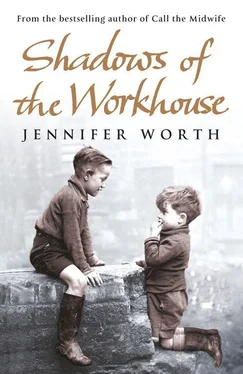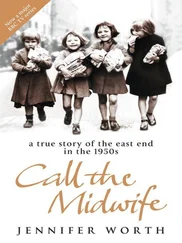But before we condemn the workhouses as an example of nineteenth-century exploitation and hypocrisy we must remember that the mores of the time were completely different from the standards of today. For the working class, life was nasty, brutish and short. Hunger and hardship were expected. Men were old at forty, women worn out at thirty-five. The death of children was taken for granted. Poverty was frankly regarded as a moral defect. Social Darwinism (the strong adapt and survive, the weak are crushed) was borrowed and distorted from the Origin of Species (1858) and applied to human organisation. These were the standards of society, accepted by rich and poor alike, and the workhouses merely reflected this.
Is there anything good that can be said about the old workhouse system? I think there is. Thousands of children who would have died of starvation on the streets were housed and reared – brutally, perhaps, by modern standards, but they survived, and after the 1870 Education Act, they were also educated. Mass illiteracy became history, and within a couple of generations the population of Great Britain could read and write.
I recall one woman who was over eighty when I met her in the year 2000. She was an illegitimate child of a servant girl and her master. His wife discovered the girl’s pregnancy and dismissed her. The girl went to the workhouse – that was in 1915. The old lady said to me, “I am grateful to the workhouse. I learned the value of discipline and good behaviour. I learned to read and write. No, I never knew my mother, but none of us did. When I was fourteen I went into service. But I bettered myself, and learned secretarial work in night classes, and became a secretary. I am very proud of what I have achieved. I don’t like to think what might have happened to me had it not been for the workhouse.”
Mayhew’s London , by Henry Mayhew, edited by Peter Quennell. (Hamlyn Publishing Group, 1969)
The Scandal of the Andover Workhouse , by Ian Anstruther (Alan Sutton, 1984)
The Workhouse System 1834-1929 , by M. A. Crowther (Batsford, 1981)
The People of the Abyss , by Jack London (London, 1903)
The Poor Law , by S. Styles (Macmillan, 1985)
Outcast London , by G. Jones, edited by G. Steadman (Oxford, 1971)
In Darkest London , by William Booth (London, 1890)
The Life and Labour of the Poor (nine vols.) , by Charles Booth (London, 1880-1892)
Pauper Palaces , by Ann Digby (Routledge, 1978)
The Workhouse , by Norman Longmate (Maurice Temple-Smith, 1974)
Down and Out in Paris and London , by George Orwell
The Victorian Workhouse , by Trevor May (Shire Publication, 1997)
The English Poor Law 1780-1930 , by Michael Rose (David and Charles, 1971)
Into Unknown England 1866-1913 , edited by Peter Keating (Fontana/ Collins, 1976)
‘The Homeless’ from In Darkest England and the Way Out (William Booth, 1890)
‘On the Verge of the Abyss’ from In Darkest England and the Way Out (William Booth, 1890)
‘The Submerged Tenth’ from In Darkest England and the Way Out (William Booth, 1890)
‘The Bitter Cry of Outcast London’, by Andrew Mearns (first published in The Pall Mall Gazette , 1883)
‘A Night in a Workhouse’, by James Greenwood (first published in The Pall Mall Gazette , 1866)
Workhouses of the North , by Peter Higginbotham (Tempus Publications, 1999)
The Midwives of St Raymund Nonnatus is a pseudonym. I have taken the name from St Raymund Nonnatus, the patron saint of midwives, obstetricians, pregnant women, childbirth and newborn babies. He was delivered by Caesarean section (“ non natus ” is the Latin for “not born”) in Catalonia, Spain, in 1204. His mother, not surprisingly, died at his birth. He became a priest and died in 1240.






![Theresa Cheung - The Dream Dictionary from A to Z [Revised edition] - The Ultimate A–Z to Interpret the Secrets of Your Dreams](/books/692092/theresa-cheung-the-dream-dictionary-from-a-to-z-r-thumb.webp)





